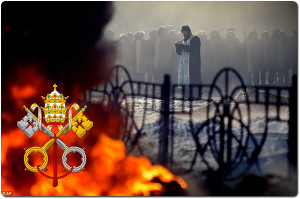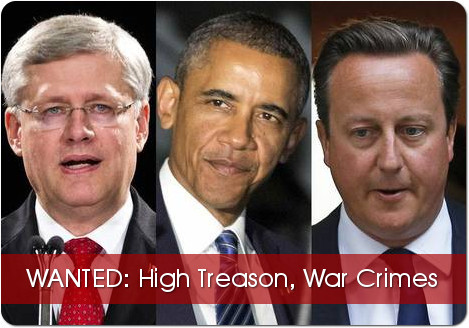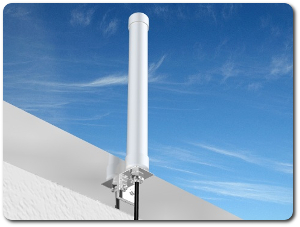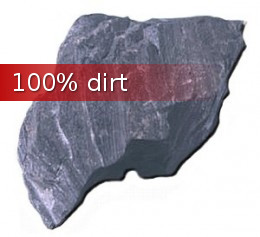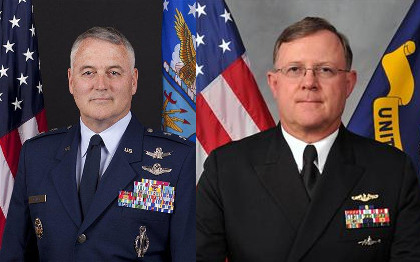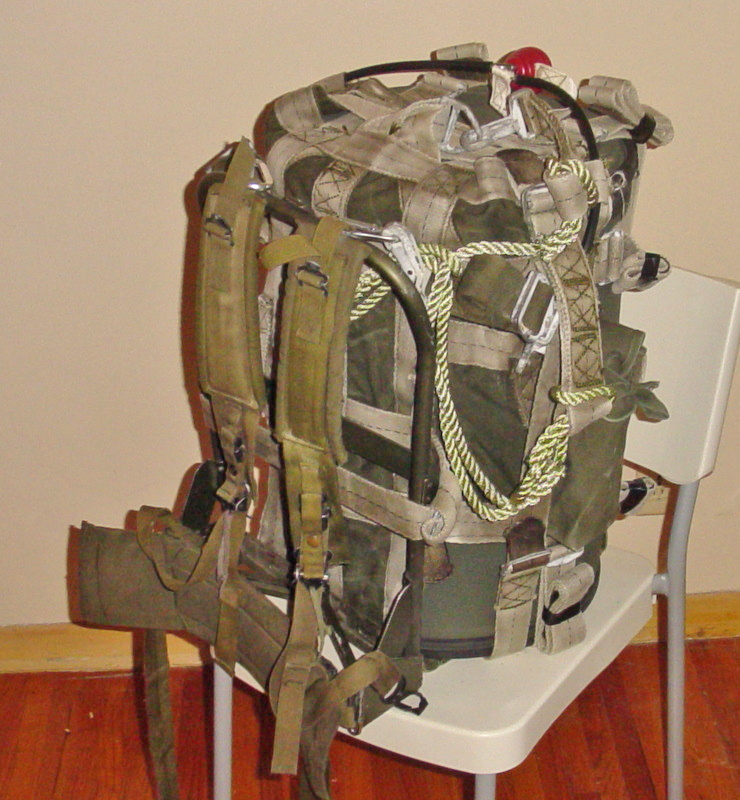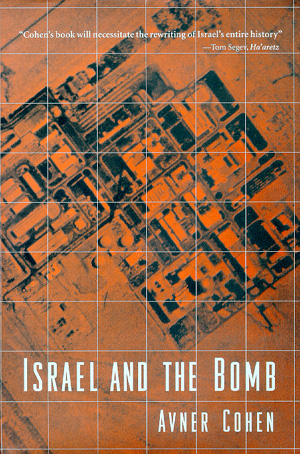Ten days after 9/11 the U.S. government had already decided to attack Iraq, Syria, Lebanon, Libya, Somalia, Sudan & Iran.
Heinous Crimes, World news Thursday, July 7th, 2011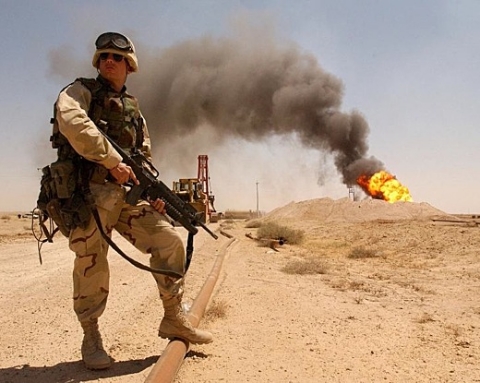
A picture is worth a thousand words – Armed US soldier and gas pipeline
Just ten days after 9/11 the Pentagon was given orders by the Bush/Cheney White House to make plans to attack Iraq and 6 other countries. Ten years ago, in September of 2001, the US government had their military sights set on Iraq, Syria, Lebanon, Libya, Somalia, Sudan and Iran. The United States government had already made plans to launch armed attacks against the above mentioned countries – without provocation. An interview with a 4 star United States general revealed the United States government’s plan for 7 wars of aggression. Three of those 7 unprovoked wars of aggression were to steal the oil and natural gas reserves of the attacked countries. Iraq, Libya and Iran, all rich oil producing nations, are and will be victims of US and US lead wars of aggression.
There were no weapons of mass destruction or links to the CIA created al Qaeda in Iraq and there is neither in Libya and Iran so the US government has decided to use CIA recruited and paid foreign mercenaries to start up armed rebellions against the governments of the targeted countries.
The Libya rebels are and have always been CIA paid and controlled foreign mercenaries. The people being killed in Libya and Syria are not civilians they are CIA foreign mercenaries. The job of the CIA foreign mercenaries is to create the illusion that Libyan and Syrian civilians are revolting and are being unjustly killed by Libyan and Syrian forces. The CIA foreign mercenaries are sent to Libya and Syria to create a pretext for a US armed attack. The goal is to steal the oil reserves of Libya and Iran.
Why attack Syria? The U.S. wants sanctions against Syria because Syria has produced heavy-grade oil from fields located in the northeast since the late 1960s. In the early 1980s, light-grade, low-sulphur oil was discovered near Dayr az Zawr in eastern Syria. This discovery relieved Syria of the need to import light oil to mix with domestic heavy crude in refineries. Recently, Syrian oil production has been about 530,000 barrels per day. The government has successfully begun to work with international energy companies to develop Syria’s promising natural gas reserves, both for domestic use and export. U.S. energy firm, ConocoPhillips, completed a large natural gas gathering and production facility for Syria in late 2000, and served as operator of the plant until December 2005. In 2003, Syria experienced some success in attracting U.S. Petroleum companies, signing an exploration deal with partners Devon Energy and Gulfsands and a seismic survey contract with Veritas. The proven reserves of Syria’s five oil fields, all located in the northeastern part of the country, amounted to an estimated 2.5 billion barrels (400 million tons) of crude petroleum at the beginning of 2002. In comparison the proven oil reserves in the United States are 21 billion barrels
Although its oil reserves are small compared to those of many other Arab states, Syria’s petroleum industry accounts for a majority of the country’s export income. Syria is being attacked not only because of its oil and natural gas reserves but because the U.S. military strategy is to surround Iran before the US and its co–conspirators can launch another unprovoked and unlawful armed attack against Iran.
Iran is the crown jewel of the US government’s wars of aggression. Iran is the second largest producer in the Organization of Petroleum Exporting Countries (OPEC) after Saudi Arabia (which has all but depleted its oil reserves). Iran also has gas reserves estimated to be 33.1 trillion cubic meters. Iran has the second biggest natural gas reserves after Russia. The United States is using foreign mercenaries to create a pretext for a war of aggression against Iran. These wars of aggression are to steal the oil and natural gas reserves of the Middle East.
General Wesley Clark. Retired 4-star U.S. Army general, Supreme Allied Commander of NATO during the 1999 War on Yugoslavia . … I had been through the Pentagon right after 9/11. About ten days after 9/11, I went through the Pentagon and I saw Secretary Rumsfeld and Deputy Secretary Wolfowitz. I went downstairs just to say hello to some of the people on the Joint Staff who used to work for me, and one of the generals called me in. He said, “Sir, you’ve got to come in and talk to me a second.” I said, “Well, you’re too busy.” He said, “No, no.” He says, “We’ve made the decision we’re going to war with Iraq.” This was on or about the 20th of September. I said, “We’re going to war with Iraq? Why?” He said, “I don’t know.” He said, “I guess they don’t know what else to do.” So I said, “Well, did they find some information connecting Saddam to al-Qaeda?” He said, “No, no.” He says, “There’s nothing new that way. They just made the decision to go to war with Iraq.” He said, “I guess it’s like we don’t know what to do about terrorists, but we’ve got a good military and we can take down governments.” And he said, “I guess if the only tool you have is a hammer, every problem has to look like a nail.”
So I came back to see him a few weeks later, and by that time we were bombing in Afghanistan. I said, “Are we still going to war with Iraq?” And he said, “Oh, it’s worse than that.” He reached over on his desk. He picked up a piece of paper. And he said, “I just got this down from upstairs” — meaning the Secretary of Defense’s office — “today.” And he said, “This is a memo that describes how we’re going to take out seven countries in five years, starting with Iraq, and then Syria, Lebanon, Libya, Somalia, Sudan and, finishing off, Iran.” I said, “Is it classified?” He said, “Yes, sir.” I said, “Well, don’t show it to me.” And I saw him a year or so ago, and I said, “You remember that?” He said, “Sir, I didn’t show you that memo! I didn’t show it to you!”
Short URL: https://presscore.ca/news/?p=828

 The Halifax International Security Forum was founded in 2009 as a propaganda program within the German Marshall Fund (founded June 5, 1972 by West German Chancellor Willy Brandt) by the Crown in Canada using Crown Corp ACOA & DND funds. The Halifax International Security Forum is a front that is used to recruit top US, UK and Canadian gov and military officials as double agents for Canada's WWI, WWII enemy and wage new Vatican Germany Cold War.
High Treason: s.46 (1) Every one commits high treason who, in Canada (c) assists an enemy at war with Canada, ..., whether or not a state of war exists". Every one who, in Canada assists Canada's enemies wage "piecemeal WWIII" Cold War by organizing, funding and participating in the Germany government politically and militarily benefitting / lead Halifax International Security Forum is committing high treason.
The Halifax International Security Forum was founded in 2009 as a propaganda program within the German Marshall Fund (founded June 5, 1972 by West German Chancellor Willy Brandt) by the Crown in Canada using Crown Corp ACOA & DND funds. The Halifax International Security Forum is a front that is used to recruit top US, UK and Canadian gov and military officials as double agents for Canada's WWI, WWII enemy and wage new Vatican Germany Cold War.
High Treason: s.46 (1) Every one commits high treason who, in Canada (c) assists an enemy at war with Canada, ..., whether or not a state of war exists". Every one who, in Canada assists Canada's enemies wage "piecemeal WWIII" Cold War by organizing, funding and participating in the Germany government politically and militarily benefitting / lead Halifax International Security Forum is committing high treason.
 Please take a moment to sign a petition to
Please take a moment to sign a petition to 


































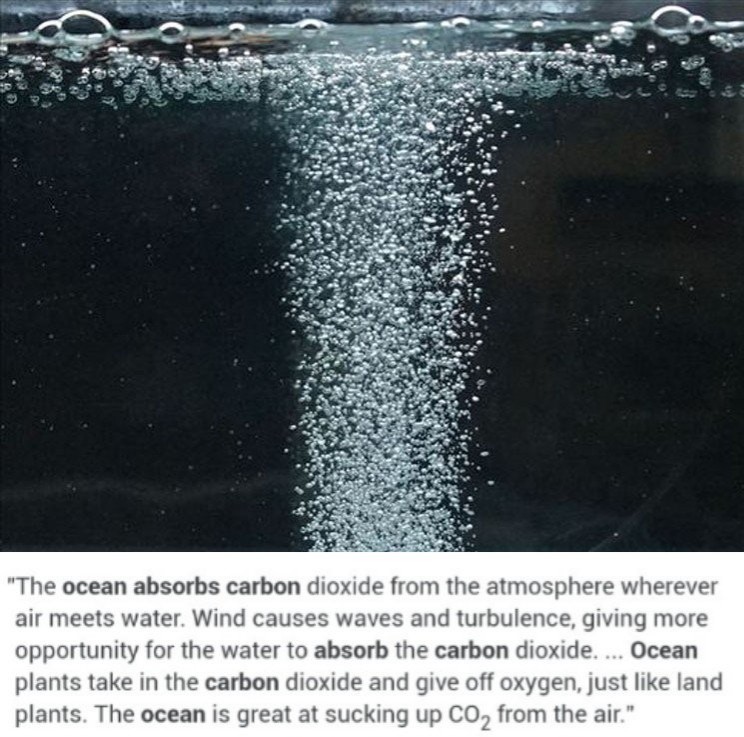
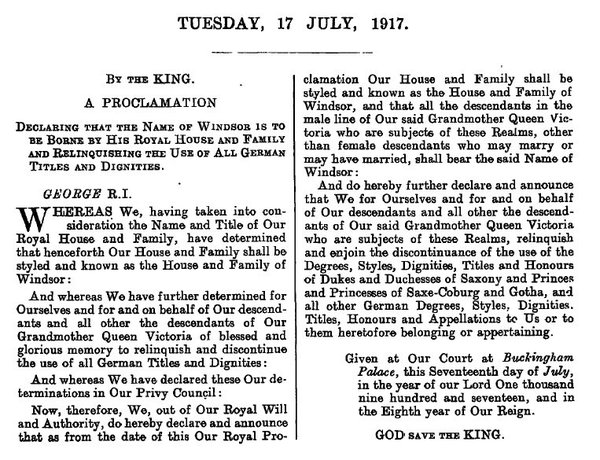




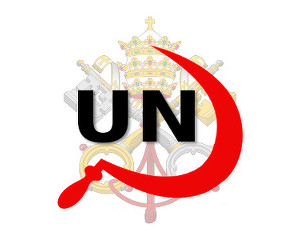
 1917 Code of Canon Law, Canon 185 invalidates (voids) all papacies since October 26, 1958 due to the fact Cardinal Giuseppe Siri was elected Pope on the Third ballot on Oct 26 1958 but the new Pope Gregory XVII was illegally prevented from assuming the office. A Pope was elected on October 26, 1958. Thousands of people witnessed a new Pope being elected by seeing white smoke and millions were informed by Vatican radio broadcasts beginning at 6:00 PM Rome time on October 26, 1958. The papacy of Francis, Benedict, John Paul II, John Paul I, Paul VI, John XXIII and any and all of their respective doctrines, bulls, letter patents and the Second Vatican Council are all invalidated (having no force, binding power, or validity) by Canon 185 because the 1958 conclave of cardinals elected Cardinal Giuseppe Siri Pope on Oct 26 1958. Cardinal Giuseppe Siri accepted the papacy by taking the name Pope Gregory XVII but was illegally prevented from assuming his elected office.. According to Canon 185 Cardinal Angelo Giuseppe Roncalli illegally assumed the papacy 2 days later by fraud and grave fear, unjustly inflicted against Cardinal Giuseppe Siri who was lawfully elected Pope Gregory XVII. Because no Pope has been lawfully elected since October 26, 1958 the Holy See (la Santa Sede/Seat) remains vacant.
1917 Code of Canon Law, Canon 185 invalidates (voids) all papacies since October 26, 1958 due to the fact Cardinal Giuseppe Siri was elected Pope on the Third ballot on Oct 26 1958 but the new Pope Gregory XVII was illegally prevented from assuming the office. A Pope was elected on October 26, 1958. Thousands of people witnessed a new Pope being elected by seeing white smoke and millions were informed by Vatican radio broadcasts beginning at 6:00 PM Rome time on October 26, 1958. The papacy of Francis, Benedict, John Paul II, John Paul I, Paul VI, John XXIII and any and all of their respective doctrines, bulls, letter patents and the Second Vatican Council are all invalidated (having no force, binding power, or validity) by Canon 185 because the 1958 conclave of cardinals elected Cardinal Giuseppe Siri Pope on Oct 26 1958. Cardinal Giuseppe Siri accepted the papacy by taking the name Pope Gregory XVII but was illegally prevented from assuming his elected office.. According to Canon 185 Cardinal Angelo Giuseppe Roncalli illegally assumed the papacy 2 days later by fraud and grave fear, unjustly inflicted against Cardinal Giuseppe Siri who was lawfully elected Pope Gregory XVII. Because no Pope has been lawfully elected since October 26, 1958 the Holy See (la Santa Sede/Seat) remains vacant.
 Hold the Crown (alias for temporal authority of the reigning Pope), the Crown appointed Governor General of Canada David Lloyd Johnston, the Crown's Prime Minister (servant) Stephen Joseph Harper, the Crown's Minister of Justice and Attorney General Peter Gordon MacKay and the Crown's traitorous military RCMP force, accountable for their crimes of treason and high treason against Canada and acts preparatory thereto. The indictment charges that they, on and thereafter the 22nd day of October in the year 2014, at Parliament in the City of Ottawa in the Region of Ontario did, use force and violence, via the staged false flag Exercise Determined Dragon 14, for the purpose of overthrowing and besieging the government of Canada contrary to Section 46 of the Criminal Code. In a society governed by the rule of law, the government and its officials and agents are subject to and held accountable under the law. Sign the online
Hold the Crown (alias for temporal authority of the reigning Pope), the Crown appointed Governor General of Canada David Lloyd Johnston, the Crown's Prime Minister (servant) Stephen Joseph Harper, the Crown's Minister of Justice and Attorney General Peter Gordon MacKay and the Crown's traitorous military RCMP force, accountable for their crimes of treason and high treason against Canada and acts preparatory thereto. The indictment charges that they, on and thereafter the 22nd day of October in the year 2014, at Parliament in the City of Ottawa in the Region of Ontario did, use force and violence, via the staged false flag Exercise Determined Dragon 14, for the purpose of overthrowing and besieging the government of Canada contrary to Section 46 of the Criminal Code. In a society governed by the rule of law, the government and its officials and agents are subject to and held accountable under the law. Sign the online  Two of the most obvious signs of a dictatorship in Canada is traitorous Stephen Harper flying around in a "military aircraft" and using Canadian Special Forces "military" personnel from JTF2 and personnel from the Crown's traitorous martial law "military" RCMP force as his personal bodyguards.
Two of the most obvious signs of a dictatorship in Canada is traitorous Stephen Harper flying around in a "military aircraft" and using Canadian Special Forces "military" personnel from JTF2 and personnel from the Crown's traitorous martial law "military" RCMP force as his personal bodyguards.

